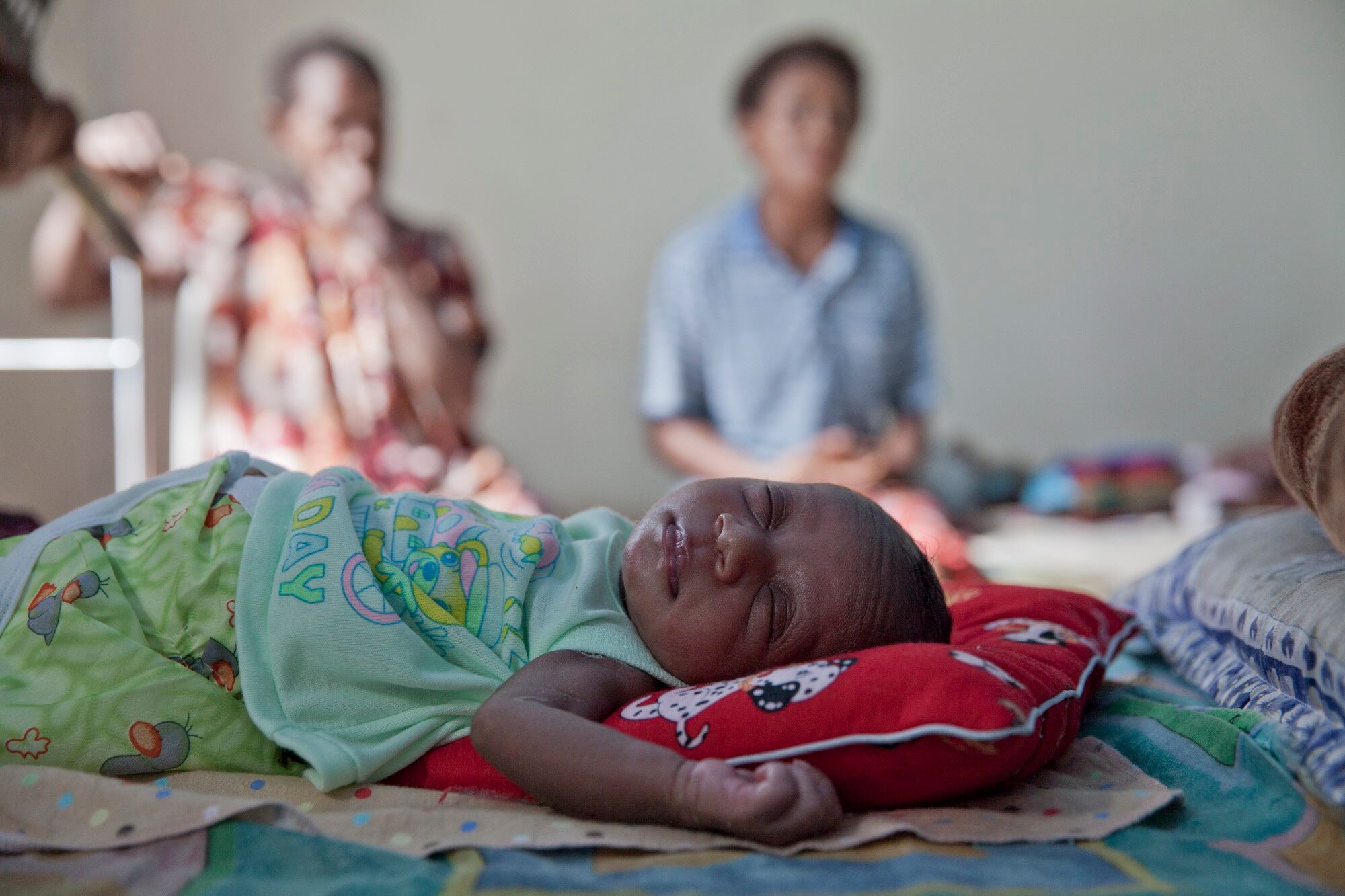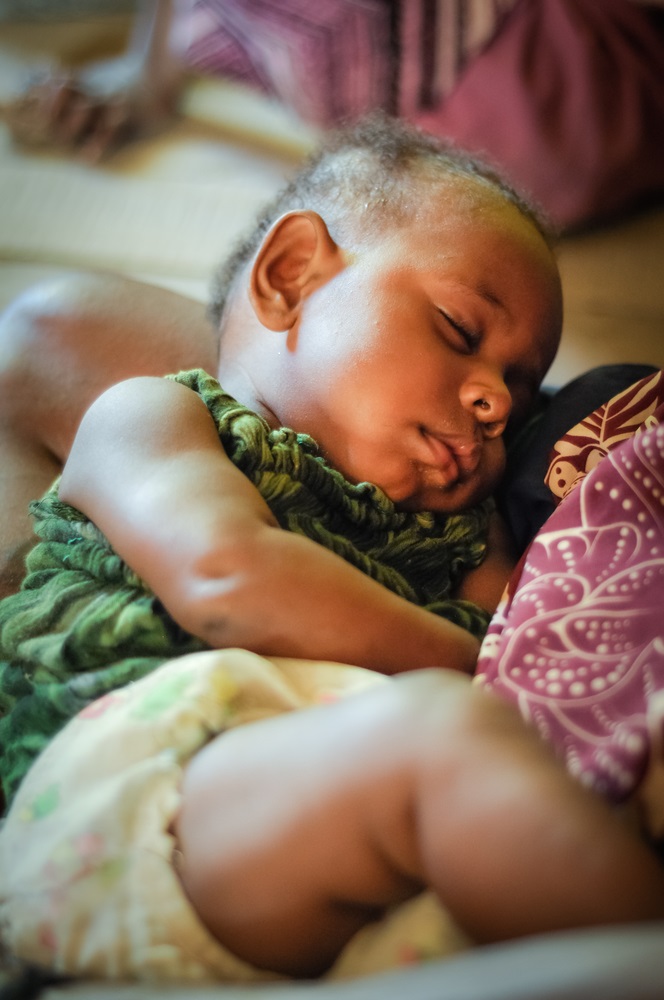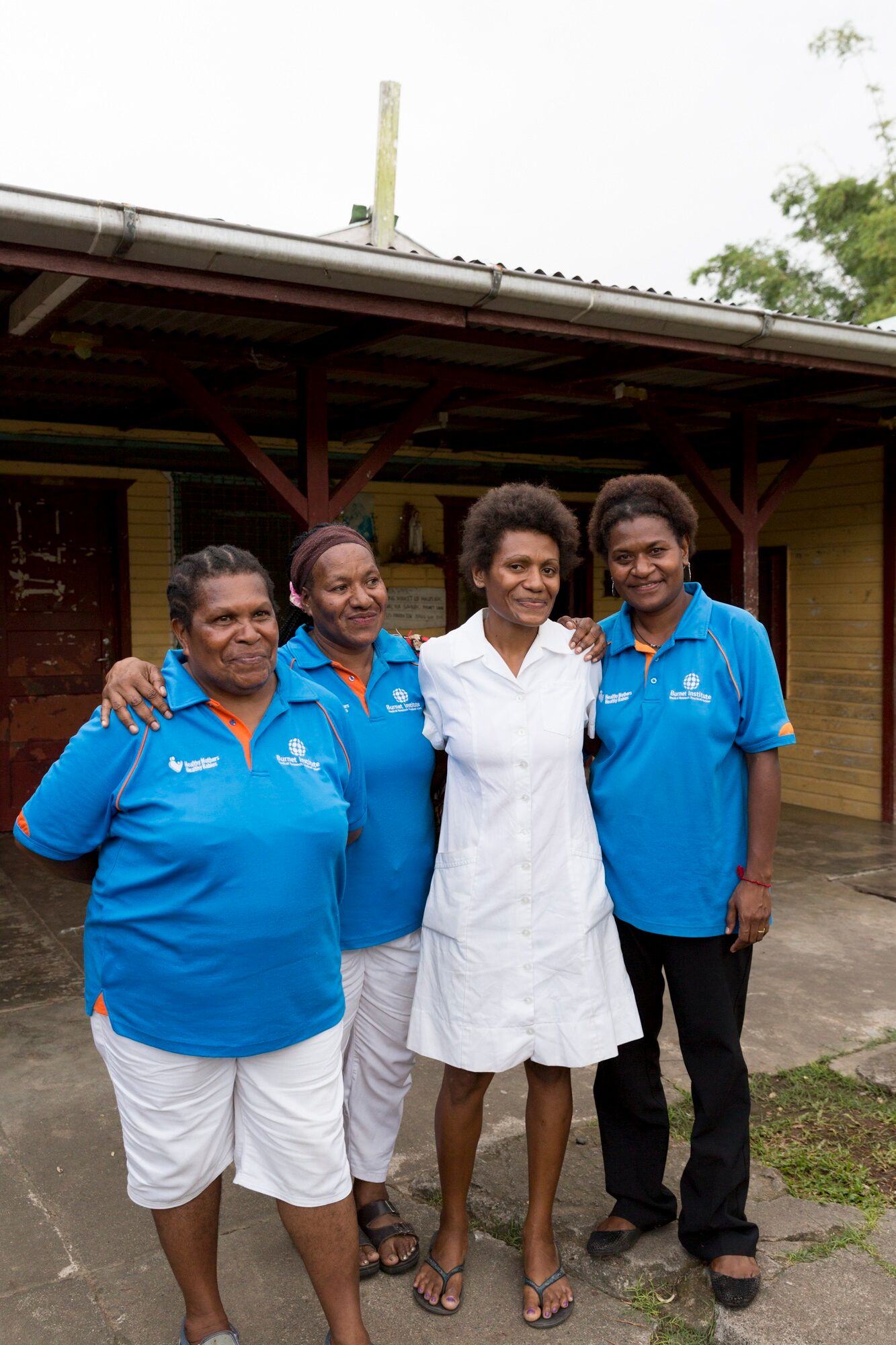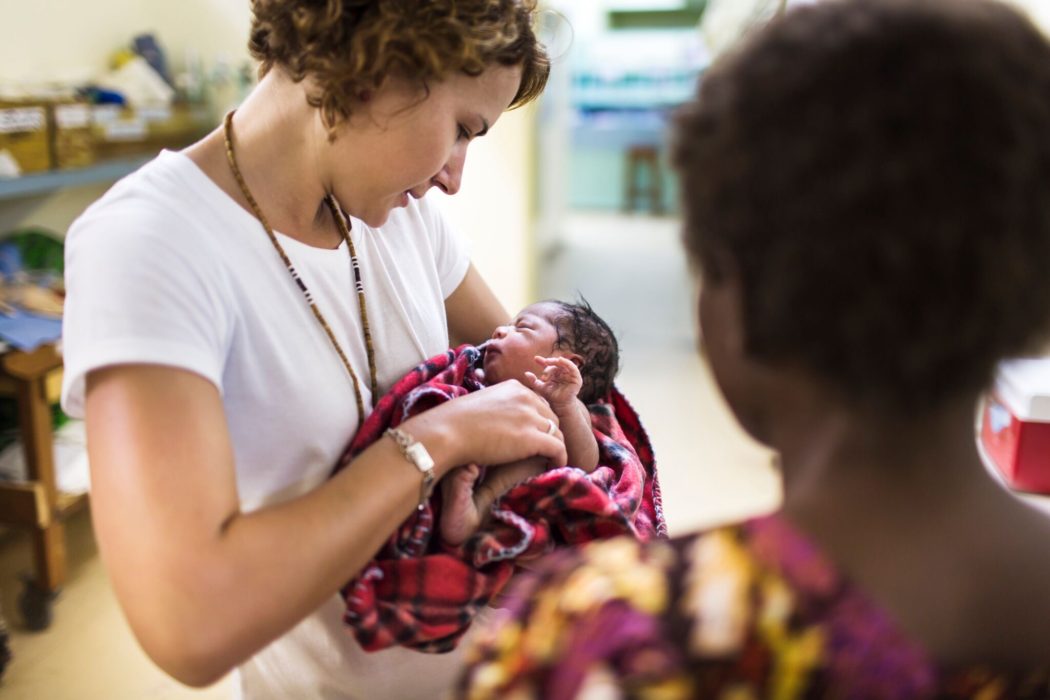Burnet Institute’s Healthy Mothers, Healthy Babies is an important collabrative program designed to respond to the unfinished work of addressing the high rate of maternal and newborn deaths in Papua New Guinea.
When women in Australia ponder their pregnancy and the upcoming birth of their child to be, they often think of the joys (and sleepless nights) they’re likely to face. We’re lucky that it’s rare to ever hear of a mother dying in childbirth, and whilst some families do face the horrendous tragedy of stillbirth or newborn death, it’s thankfully uncommon. We’re so fortunate to have excellent prenatal care and ready access to quality and timely healthcare throughout pregnancy and birth. But this is not the case in Papua New Guinea (PNG) where the maternal mortality rate is one of the highest in the world.
PNG is our nearest neighbour and so it is astonishing that the risks facing mothers and their babies there is so profoundly different to those we face here, just a hundred or so kilometres away. Around 1,500 mothers lose their lives as a consequence of pregnancy or childbirth per year in PNG, and more than 5,000 babies die in their first month of life. This is a devastating reality for families in PNG.

The good news is that one of Australia’s leading medical research organisations, the Melbourne-based Burnet Institute is working hard to change this. The Burnet has been working in PNG for close to 20 years. The cornerstone of their work in PNG is Healthy Mothers, Healthy Babies research program (HMHB), which is designed to help women and their babies have the best chance of surviving childbirth and give babies the best start possible to then thrive through childhood.
PNG is our nearest neighbour and so it is astonishing that the risks facing mothers and their babies there is so profoundly different to those we face here, just a hundred or so kilometres away.
There are many factors that contribute to PNG’s very high mortality rates, rugged geography and poor infrastructure, especially in rural and remote areas, can mean access to health care is very difficult. There can be a lack of understanding around the importance of antenatal care with many women attending clinics late in pregnancy or not at all. There can also be small but significant financial constraints on families, which add to the burden of travel or the cost of accessing care, or there could also be the lack of partner support, or a preference for traditional birthing practices within villages.
All these issues can be further complicated by the complexity surrounding common diseases that are often present such as malaria, undiagnosed sexually transmissible infections, tuberculosis as well as malnutrition and high levels of anaemia, all of which can contribute to poor maternal and newborn outcomes.

Healthy Mothers, Healthy Babies is working towards a healthier PNG, focusing on improving outcomes for women and babies in order to save lives. It is a broad research program examining medical causes and behavioural risk factors for poor health, and also looking at social factors influencing health, the provision of health services, and how to encourage effective uptake of services.
Our team of researchers is working alongside local facilities and communities to better understand some of the difficult issues that contribute to poor health outcomes for women and babies in PNG. HMHB is aiming to identify what the main drivers are for poor maternal and newborn health, especially for babies being born too small. Babies born too small, either because they haven’t been able to grow adequately in pregnancy or because they’re born too soon, face a much higher risk of dying in childbirth or early infancy. For those babies who make it through, they face a higher risk of poor growth and development in childhood, often referred to as stunting.
Around 1,500 mothers lose their lives as a consequence of pregnancy or childbirth per year in PNG, and more than 5,000 babies die in their first month of life.
Burnet’s Senior Researcher, Dr Michelle Scoullar, has been working on the Healthy Mothers, Healthy Babies program since 2014, and having lived and worked in Papua New Guinea, understands just how difficult it can be to improve a system that is so complex.
“There are many gaps in our understanding, but through our Healthy Mothers, Healthy Babies program we are already identifying some of the key issues that are impacting on mothers and babies that can be targeted to improve their health,” Dr Scoullar says.
“As part of our first study, we have recruited 700 pregnant women in East New Britain Province and we’re following them from their first antenatal clinic visit, through to their labour, and then also seeing them and their baby at one month, six months and at 12 months.
“At each visit we’re taking a whole series of blood tests and swabs, and growth measurements to identify any issues such as infectious diseases, anaemia, nutritional deficiencies and stunting.”

Photo: Some of Burnet’s Healthy Mothers, Healthy Babies research team including (right to left) Rose Suruka, Lucy Au and Elizabeth Walep together with Sr. Jacklyn Telo.
We’re also interviewing families and healthcare workers identifying barriers to families accessing available health care, and looking at ways to improve the quality of services currently provided, all factors that ultimately influence outcomes for mothers and babies.
One key issue that has arisen from our study is the significant lack of knowledge about family planning.
“Only one in four women interviewed as part of this study had used a modern method of contraception and we’ve found there is a huge demand for these methods of contraception but less than half of the demand is being met,” Dr Scoullar says.
“Supporting women and couples to plan for healthy timing and spacing of births is a cost-effective approach to reducing maternal and infant mortality and has proven benefits not just in preventing death, but also for gender equality, educational attainment and poverty reduction.”
“Were only part-way through the Healthy Mothers, Healthy Babies program and very limited by funding, so any additional support from the Australian or Papua New Guinea community will help us make a huge difference to women and children in Papua New Guinea.”
Dr Michelle Scoullar is a paediatric doctor who is also completing her PhD as part of the Healthy Mothers, Healthy Babies program.
For more information about the Burnet Institute and Healthy Mothers, Healthy Babies or to make a donation go to burnet.edu.au or call (03) 9282 2111



